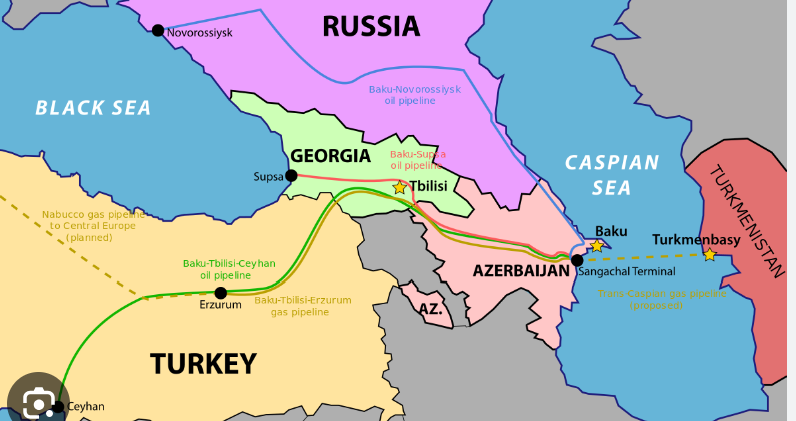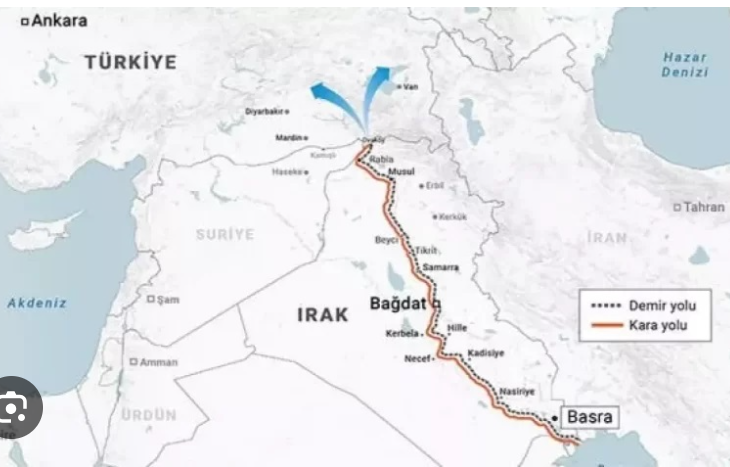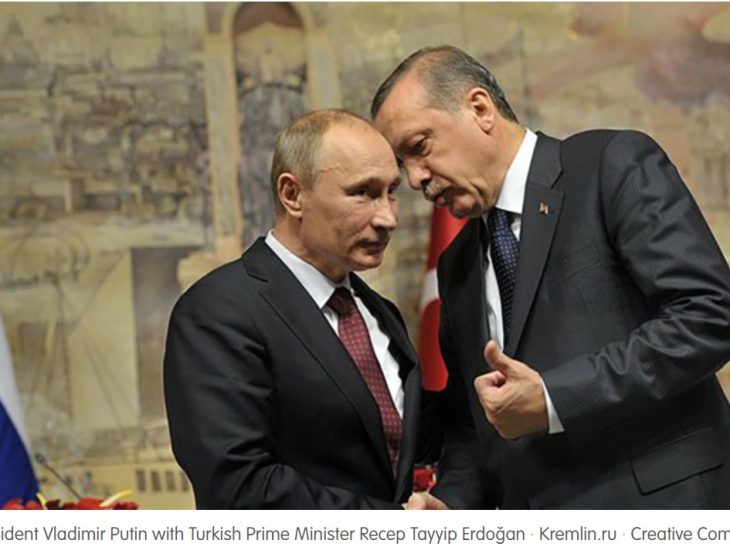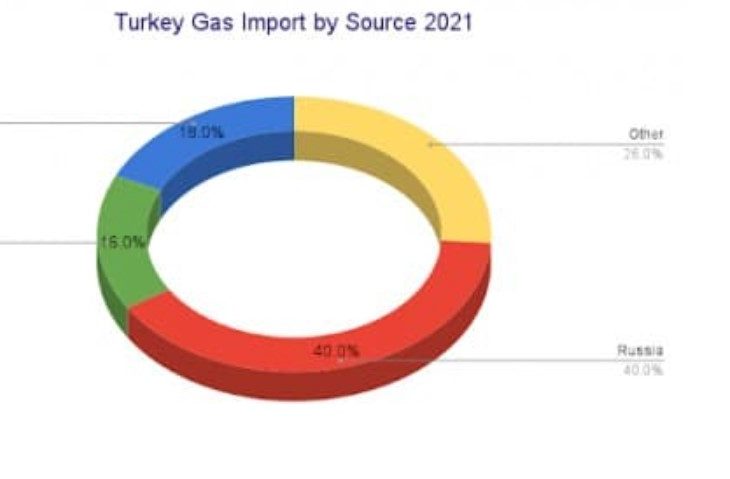ANALYSIS: Two developments to enhance Turkey’s role as EU’s NG supplier
 kafkas doğla gaz
kafkas doğla gaz
A big shift is brewing for Caspian Basin energy exports. In a diplomatic about-face, Turkmenistan has signaled its readiness to develop a Trans-Caspian pipeline that potentially could increase natural gas deliveries to the European Union. Turkish President Erdogan signed a gas delivery agreement with Victor Orban of Hungary, the first ever allowing Turkey to sell gas to a non-neighbor country.
Turkey still harbors dreams of becoming Russia’a energy hub, a project which has very little potential because Ukraine War is expected to drag on for years and more importantly Europe has keenly recognized the risk of entrusting its energy security to a single neighbor. One way to diversify NG procurement is to attract more deliveries from Azerbaijan and now Turkmenistan. A second venue is to incentivize the construction of the long-mooted East Med subterranean NG pipeline. As it stands, the proposed pipeline from Israeli, Egyptian and Greek Cypriot off-shore fields is not economically feasible. But, if Cyprus can be persuaded to cooperate a much shorter line connecting East Med offshore reserves to mainland Turkey, which already has ample infrastructure to deliver it to European markets is profitable.
The contract to sell gas to Hungary is only of symbolic importance, but it sets a precedent in legal terms opening the way for more such deals, assuming Turkey can find more NG. Can it?
The westward shift in Ashgabat’s export intentions is not expected to impact Turkmenistan’s ability to fulfill existing export commitments to China. The Central Asian state is believed to have more than enough reserves to send large volumes of gas eastward and westward, says Eurasianet. The Turkmen announcement, however, could potentially eat into Russia’s share of the gas-export pie, depriving the Kremlin of revenue it needs to sustain its war effort in Ukraine.
If a pipeline for Europe-bound exports is built, Turkmenistan stands to capture some of Russia’s European gas markets and/or replace Russian exports to Turkey. Russia currently provides around 40 percent of Turkey’s gas needs.
[embed]https://www.youtube.com/watch?v=vQPolEQQ9WA&t=7s[/embed]
The appetite in Europe for Turkmen gas remains strong. An agreement between Azerbaijan and the European Union should see the volume of Azeri gas flowing to Europe doubling to 20 billion cubic meters a year by 2027. But that amounts to less than 12 percent of the lost Russian gas.
Whether Baku can deliver such volume to the EU remains uncertain, with questions still being asked over whether Azerbaijan can boost production sufficiently to meet growing domestic demand, while honoring existing export commitments and its promise to Brussels.
Gas from Turkmenistan could help Azerbaijan meet its 20 bcm/yr commitment and potentially double or even triple that volume.
And the signs are that it’s not just EU member states that are interested. On May 25, Turkey’s energy regulator EPDK issued another 10-year import license to Turkey’s state gas importer Botas for importing gas from Turkmenistan, the second time that license has been renewed. The license relates to a contract to import 16 bcm/yr of Turkmen gas, signed in the late 1990s on the expectation that a pipeline would be built.
Hungary's MVM to buy gas from Turkey's BOTAS in 'groundbreaking' deal
Hungarian energy conglomerate MVM has agreed to buy about 300 million cubic metres (mcm) of natural gas from Turkish energy company BOTAS, reported Reuters.
"This strategic arrangement is part of the government's comprehensive initiative to bolster national energy self-sufficiency," Hungarian government spokesman Zoltan Kovacs said on social media platform X, formerly known as Twitter.
"This move aims to enhance energy security and stabilise gas prices, given the international energy crisis caused by conflicts and sanctions."
[embed]https://www.youtube.com/watch?v=c3fQZiI9Sj4&t=3s[/embed]
Even with the green light from Ashgabat, the question remains: who wants to finance the pipeline’s construction, a project sure to cost billions of dollars? Speaking in May, Azerbaijan’s president Ilham Aliyev confirmed that Baku would be happy to transit Turkmen gas, but would not help fund any pipelines and called on the companies developing Turkmenistan’s gas fields, international investors and the gas buyers in Europe interested in taking the gas to arrange financing.
One company whose name has been mentioned as a possible investor is Abu Dhabi National Oil Company (ADNOC). The company has been active in Turkmenistan’s hydrocarbon extraction, refining, and trading for around 15 years, has cash on hand and is looking to further expand its investments outside the Emirates.
Given the recent re-engagement of Turkey with Gulf Monarchies, which netted a $50 bn strategic cooperation deal with UAE, adding the financing of developing a Trans-Caspian line does not sound too fantastic.
Comments by PA Turkey staff
Follow our English language YouTube videos @ REAL TURKEY: https://www.youtube.com/channel/UCKpFJB4GFiNkhmpVZQ_d9Rg
And content at Twitter: @AtillaEng
Facebook: https://www.facebook.com/realturkeychannel





